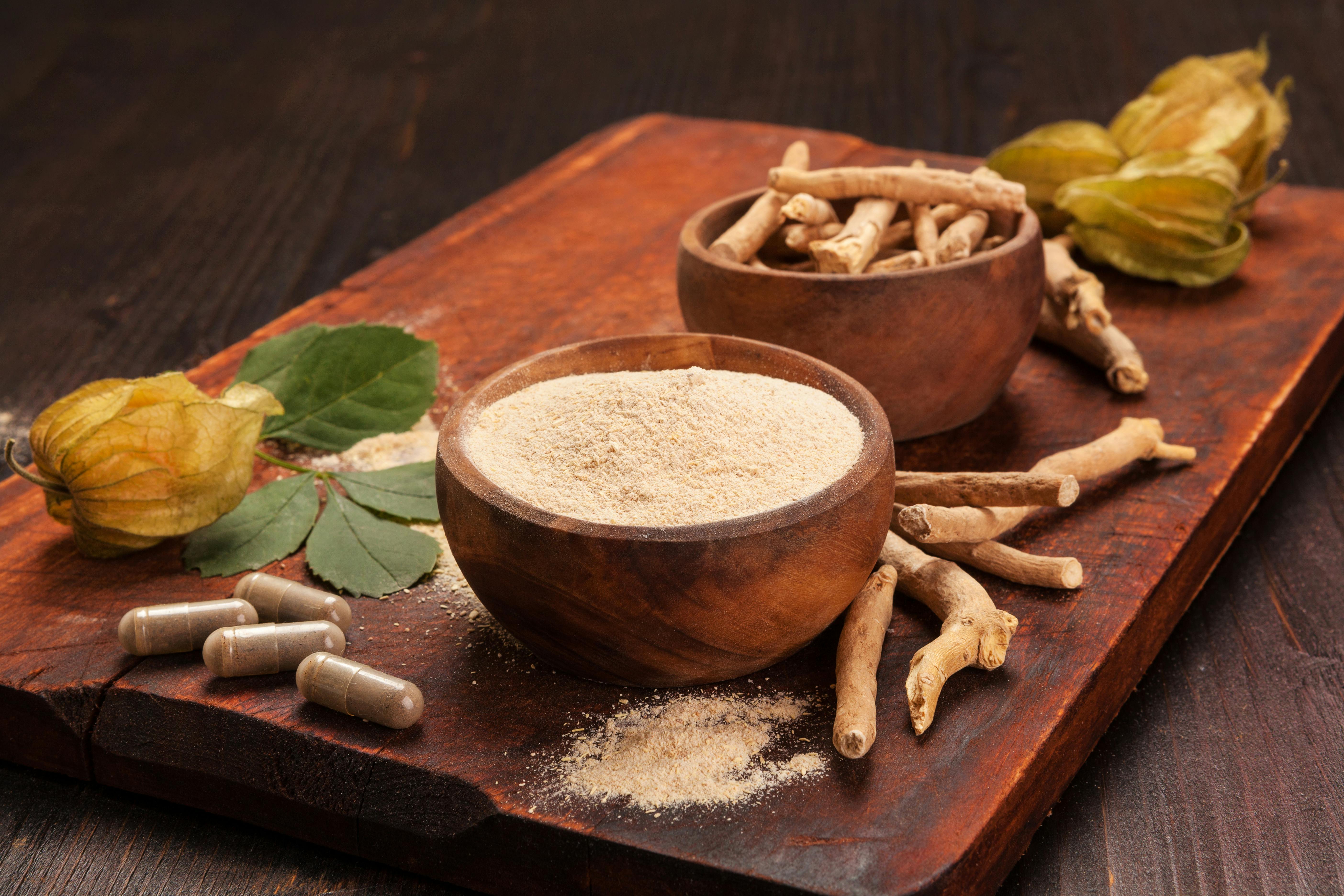Exploring The Benefits of Ashwagandha

When we experience stress or fatigue, we might turn to different remedies to feel better. Ashwagandha, also known as Indian ginseng or winter cherry, has been used for thousands of years and is an integral part of traditional Indian medicine (Ayurveda) that has numerous benefits today as well.
What Is Ashwagandha?
Ashwagandha is a small shrub native to India, Africa, and parts of the Middle East.1 Its name is derived from the Sanskrit words "ashva," meaning horse, and "gandha," meaning smell—is named so because its roots have a distinct odor, somewhat similar to a horse.
What Does Ashwagandha Do?
When ashwagandha root is ingested—either as a pill or a powder added to food or tea—it may help reduce the following occasional issues:3
Anxiety and stress
As an adaptogen, ashwagandha can support the body's resilience to stress.2 It also helps normalizes cortisol levels, which elevate as the body’s natural response to anxiety and stressful moments.1 Reducing cortisol allows ashwagandha to help your body snap out of the fight-or flight mode that can happens in stressful situations.1
Brain function
In addition, ashwagandha has shown potential to enhance the function of the brain and nervous system, improving memory abilities.2
Sleep quality
Ashwagandha has been shown to support both sleep quality and energy.3 This can have innumerable effects on your day: by incorporating it into your daily routine, not only can you wake up well-rested but also have more energy to get things done throughout your day.
Testosterone and fertility
In men, ashwagandha may help increase testosterone levels and may have some potential benefits for male fertility, including increasing sperm count. Ayurvedic medicine has traditionally used ashwagandha to promote youthful vigor, enhance muscle strength and endurance.
Please consult a doctor or healthcare professional before taking ashwagandha. If you have thyroid issues, the herb could potentially contribute to hyperthyroidism.1 Those who are pregnant or breastfeeding should avoid taking ashwagandha, as should those with autoimmune diseases.1 As with all supplements, it’s important to keep in mind that while it may help relieve occasional stress, it’s not a cure-all.1
Source Citations:
- Benefits of Ashwagandha and How Much to Take. Cleveland Clinic. https://health.clevelandclinic.org/what-is-ashwagandha/. Accessed 10/26/2023.
- An Overview on Ashwagandha: A Rasayana (Rejuvenator) of Ayurveda. National Library of Medicine. https://www.ncbi.nlm.nih.gov/pmc/articles/PMC3252722/. Accessed 10/26/2023.
- Ashwagandha. Memorial Sloan Kettering Cancer Center. https://www.mskcc.org/cancer-care/integrative-medicine/herbs/ashwagandha/. Accessed 10/26/2023.
- Withania somnifera (Indian ginseng) in diabetes mellitus: A systematic review and meta-analysis of scientific evidence from experimental research to clinical application. National Library of Medicine. https://pubmed.ncbi.nlm.nih.gov/31975514/. Accessed 10/27/2023.
- A Randomized, Double-Blind, Placebo-Controlled, Crossover Study Examining the Hormonal and Vitality Effects of Ashwagandha (Withania somnifera) in Aging, Overweight Males. National Library of Medicine. https://www.ncbi.nlm.nih.gov/pmc/articles/PMC6438434/. Accessed 10/27/2023.